We use cookies to help you navigate efficiently and perform certain functions. You will find detailed information about all cookies under each consent category below.
The cookies that are categorized as "Necessary" are stored on your browser as they are essential for enabling the basic functionalities of the site. ...
Necessary cookies are required to enable the basic features of this site, such as providing secure log-in or adjusting your consent preferences. These cookies do not store any personally identifiable data.
Functional cookies help perform certain functionalities like sharing the content of the website on social media platforms, collecting feedback, and other third-party features.
Analytical cookies are used to understand how visitors interact with the website. These cookies help provide information on metrics such as the number of visitors, bounce rate, traffic source, etc.
Performance cookies are used to understand and analyze the key performance indexes of the website which helps in delivering a better user experience for the visitors.
Advertisement cookies are used to provide visitors with customized advertisements based on the pages you visited previously and to analyze the effectiveness of the ad campaigns.
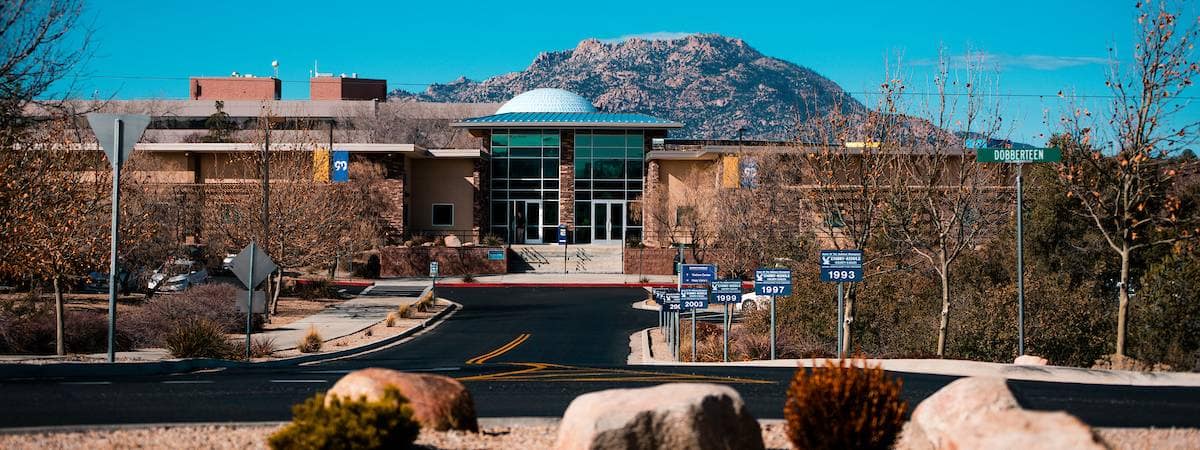
Arizona has quite a few large Universities, It’s just a matter of picking the one that’s right for you. Here we’ll list the top ones.
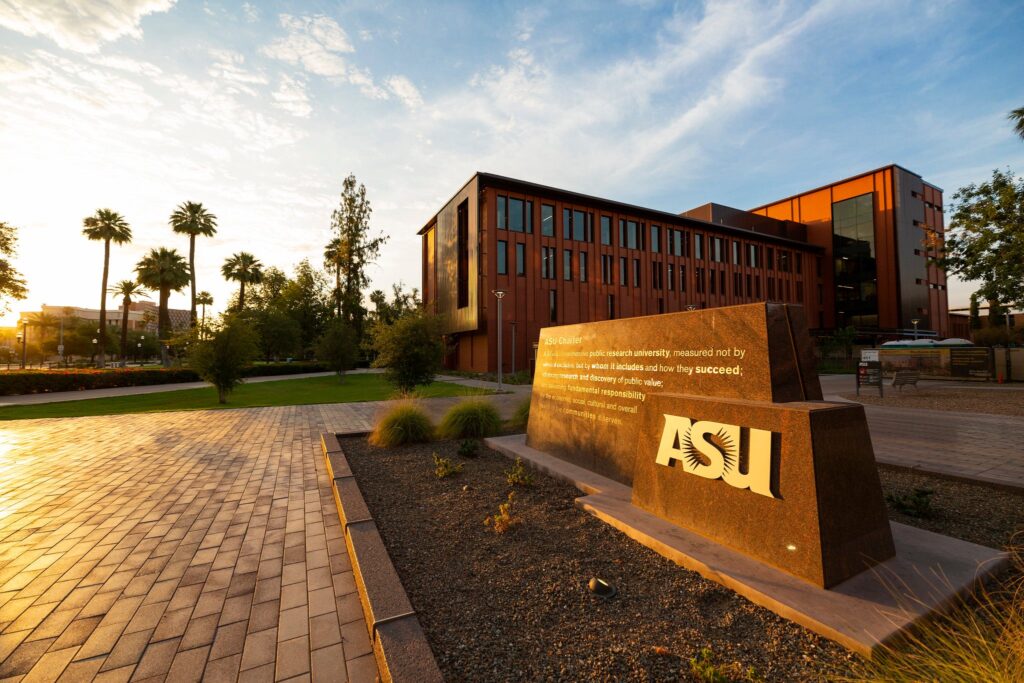
Arizona State University, Tempe, AZ
At Arizona State University, you’ll join a community that will help you explore your interests and learn new skills. Through quality academics, enrichment opportunities and support from friends and faculty, you’ll graduate prepared to accomplish your goals throughout your life. ASU ranks in the top 5 in research expenditures for universities without a medical school, offering students opportunities to conduct research for agencies such as NASA, Mayo Clinic and the National Science Foundation during their college experience. In-state tuition 11,348 USD, Out-of-state tuition 29,438 USD
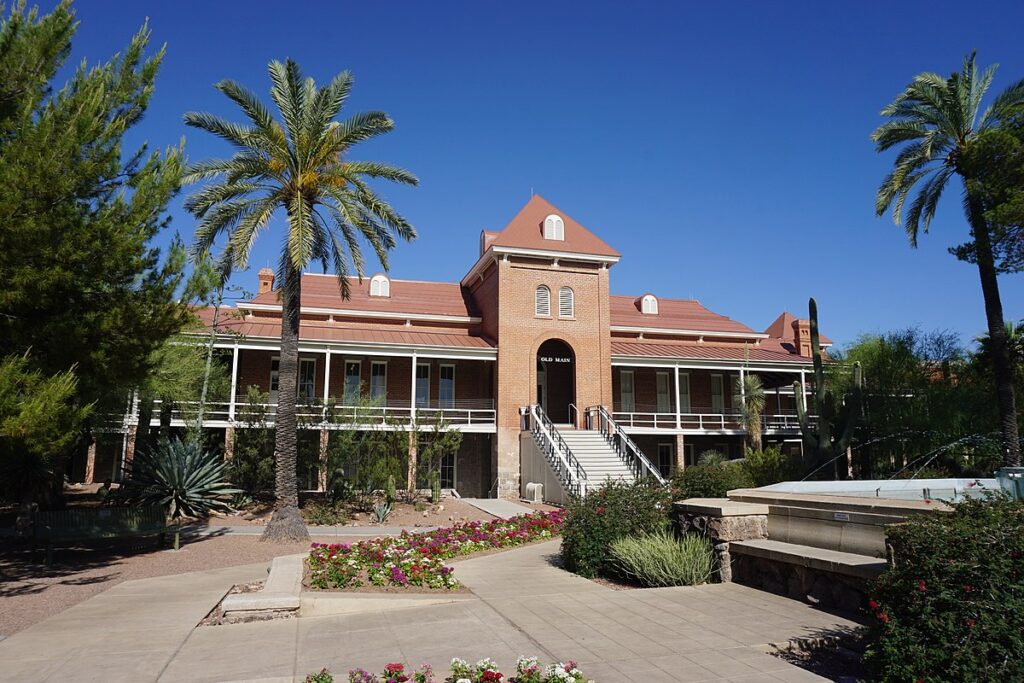
University of Arizona, Tucson, AZ
The University of Arizona (Arizona, U of A, UArizona, or UA) is a public land-grant research university in Tucson, Arizona. Founded in 1885 by the 13th Arizona Territorial Legislature, it was the first university in the Arizona Territory.
The university is classified among “R1: Doctoral Universities – Very High Research Activity”. The University of Arizona is one of three universities governed by the Arizona Board of Regents. As of 2021, the university enrolled 49,471 students in 19 separate colleges/schools, including the University of Arizona College of Medicine in Tucson and Phoenix and the James E. Rogers College of Law, and is affiliated with two academic medical centers. Tuition for both fall and spring semesters at the University of Arizona is $12,700 for full-time undergraduate residents and $37,200 for non-residents.
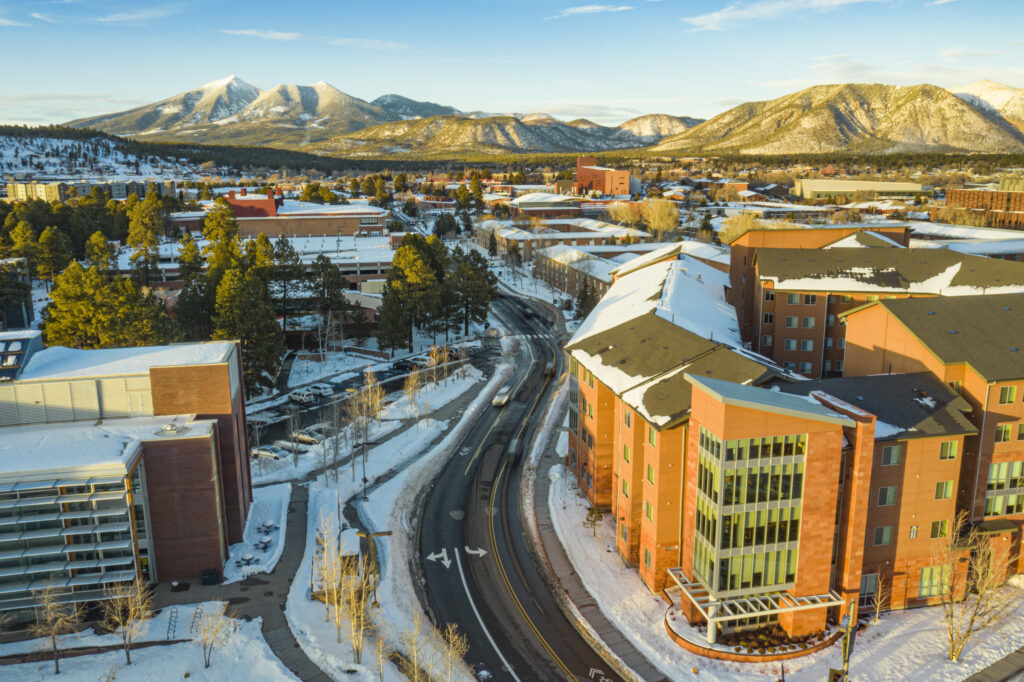
Northern Arizona University, Flagstaff, AZ
NAU is among the nation’s leaders in making higher education accessible to everyone. When you become a Lumberjack, you’ll have a dedicated network of faculty, staff, and fellow students supporting you and celebrating your successes, from application through graduation—and beyond.
Initially named the Northern Arizona Normal School, the institution opened on September 11, 1899, with 23 students, two faculty members—one, Almon Nicholas Taylor, who was also the school president—and “two copies of Webster’s International Dictionary bound in sheepskin” as teaching resources.[15] The first graduating class, in 1901, consisted of four women who received credentials to teach in the Arizona Territory. In 1925, the Arizona State Legislature allowed the school, which was then called the Northern Arizona State Teachers College (ASTC), to grant bachelor of education degrees. In 1929, the school became Arizona State Teachers College at Flagstaff. The average cost of tuition and fees for a full-time, Arizona resident undergraduate student for the 2023–24 school year is $12,652 and $28,900 for out-of-state undergraduates.

Embry-Riddle Aeronautical University, Prescott, AZ
Embry-Riddle Aeronautical University—Prescott is a private institution that was founded in 1926. It has a total undergraduate enrollment of 3,120, and the campus size is 539 acres. It utilizes a semester-based academic calendar. Embry-Riddle Aeronautical University—Prescott’s ranking in the 2024 edition of Best Colleges is Regional Colleges West, #1. Its tuition and fees are $42,204.
Embry-Riddle Aeronautical University offers the world’s premier collection of programs in aviation, aerospace, business, security and intelligence, engineering and beyond. Students immerse themselves in real-world research, pushing boundaries and reaching new career frontiers. The campus in Prescott, Arizona, is home to the nation’s first College of Business, Security and Intelligence.
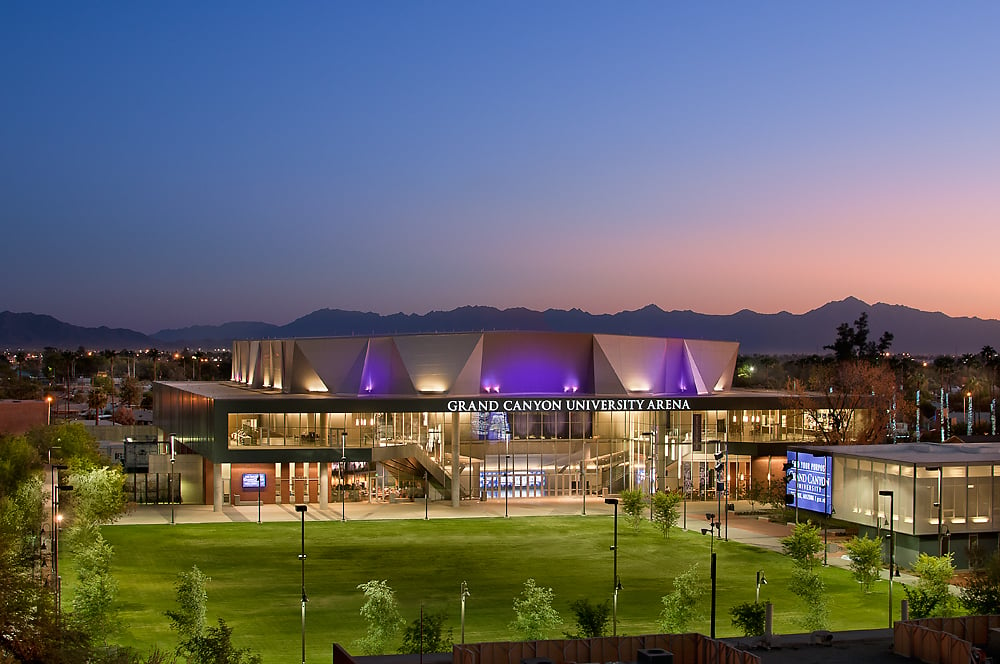
Grand Canyon University, Phoenix, AZ
Grand Canyon University is a private for-profit Christian university in Phoenix, Arizona. Based on student enrollment, Grand Canyon University was the largest Christian university in the world in 2018, with 20,000 attending students on campus and 70,000 online. Its tuition and fees are $17,800.
The university offers degree programs through its nine colleges including education, arts and media, humanities and social sciences, nursing and health care professions, science, theology, engineering and technology, and business.